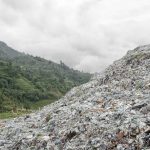Meet the Moment: SXSW 2024 on the Need for Data to Address Sustainability
– Mar. 21, 2024 –
Latest Trends & Strategies in Bettering Your Business’s Tomorrow
Earlier this month, the South by Southwest festival and conference in Austin, Texas, hosted several sessions focused on the growing concern for our planet and its resources. These sessions aimed to educate attendees about the need to transition from traditional energy sources to cleaner options and to encourage them to take action toward creating a sustainable future for their companies.
The panels, led by prominent industry leaders and government officials, discussed a range of topics, including the business value of sustainability and the integration of electric vehicles into fleets. They also emphasized the importance of reducing waste and utilizing resources more efficiently.
If you’re an executive interested in improving your company’s efficiency while taking steps toward sustainability, you may find it helpful to review the key takeaways from the sustainability-centered panels that took place at SXSW.

The “Go Green to Make Green” SXSW 2024 Panel, featuring experts (L-R) Stafford Sheehan, Kate Sixt, Chris Kanik and Marta Pazos. Photo by Quest RMG.
Business Value of Sustainability: “Go Green to Make Green” Panel
Many people believe that sustainability and business value are conflicting goals. But in reality, companies from various industries are embracing sustainable and eco-friendly procedures and technologies to cut costs, enhance competitiveness, and boost profitability.
The “Go Green to Make Green” panel highlighted how businesses can become more sustainable and gain a competitive advantage.
Here are the takeaways from the panel:
- What does sustainability really mean?
-
-
- Chris Kanik, a renowned figure in the sustainability field and the founder of Smart Cups, shared his perspective. He emphasized that sustainability is not a mere buzzword or a popular trend but a crucial element in the preservation of life and resources.
- Stafford Sheehan, a seasoned chief technology officer and co-founder at Air Company, offered practical advice. He suggested that businesses approach sustainability by considering operational, environmental, and economic aspects. He recommends aiming for at least two out of three, but ideally, all three, making it a feasible and effective strategy.
-
- How can you make sustainability profitable?
-
- Katie Sixt, a leading expert in biotechnology and a Principal Director at the Pentagon, highlighted the potential benefits of her strategy. She pointed out that waste management is a significant issue and recommended focusing on waste reclamation. This approach not only promotes sustainability but also creates new profit opportunities, a win-win situation for businesses.
- Kanik stressed the importance of marketing sustainability. However, companies need to be careful of greenwashing. They must get accurate data and consider the complete life cycle of a product to determine its total environmental impact. This process takes time, and companies must be diligent and conservative in their reporting and messaging to minimize legal risks. Making hasty decisions without proper analysis can lead to new problems that require additional solutions.

The “EVs: A Big Bet Needing Big Data” SXSW 2024 Panel, featuring experts (L-R) Reid ‘Rusty’ Heffner, Ann Xu, and Dr. Rachael Nealer. Photo by Quest RMG.
Future of EVs: “A Big Bet Needing Big Data” Panel
States, the federal government, and industry have invested billions of dollars in electric vehicles, betting on the idea that American EV adoption will be massive and play a critical role in protecting the planet’s future. However, this is not a guaranteed success.
Big data can make it a sure bet, and it must be utilized. Sharing data can ensure that charging stations are in the right locations for fleets, supply chains are prepared, and the promised reduction in emissions is achieved. Governments must leverage big data if they want EVs to be successful.
Here are the takeaways from the panel:
- The investment of billions of dollars in EVs by the federal government, states, and industries is a significant milestone. In 2023, 1.5 million plug-in vehicles were sold. However, the panel emphasized that data sharing is crucial to ensure strategically placed charging stations, prepared supply chains, and reduced emissions. The success of EVs depends on the effective utilization of data.
- Planning is critical when building out an EV-charging network to transition fleets. The panel emphasized that data and reporting play a pivotal role in this process, as they can determine whether EVs will support the routes businesses need.

The “Go Green to Make Green” SXSW 2024 Panel, featuring experts (L-R) Angie Crone, Dr. Lara Ramdin, Alexandria Coari and Ben Mand. Photo by Quest RMG.
From Waste to Gold: “Transforming Food Waste into Profits” Panel
It is estimated that about 182 billion pounds of food are thrown away every year in the United States. This amounts to approximately 149 billion meals and over $444 billion of wasted resources. This not only has a negative impact on the environment but also leads to potential losses for businesses.
This session discussed different approaches to reducing food waste and creating impactful products. The experts shared various methods such as making use of more of the harvest, upcycling food and ingredients, and collaborating with businesses and the government to minimize food waste.
Here are the takeaways from the panel:
- 30%-40% of all food produced goes unsold/uneaten each year in the U.S. Can you imagine eating dinner and immediately throwing a third of it away each time?
- 8%-10% of our global climate emissions comes from this food waste.
- Wasted fruit could be turned into nutritious powders or used to make compost (like Quest Proganics®). Mountains of valuable ingredients exist in spoiled and rejected fruit that can be reused elsewhere – why toss it?
- Waste valorization (backed by data) is in the top 10 waste solutions. A life cycle analysis can determine the impact potential.
To improve operational efficiency, business leaders like you can collaborate with others who can gather the data you need to reach a sustainable operation. They can also help you to conserve resources, reuse/recycle, and manage waste properly.
If you need guidance on your journey, consider partnering with a service provider whose business goals align with yours. Let the above learnings (and all of what we share each month in our leadership column) guide you toward bettering your business’ tomorrow.









